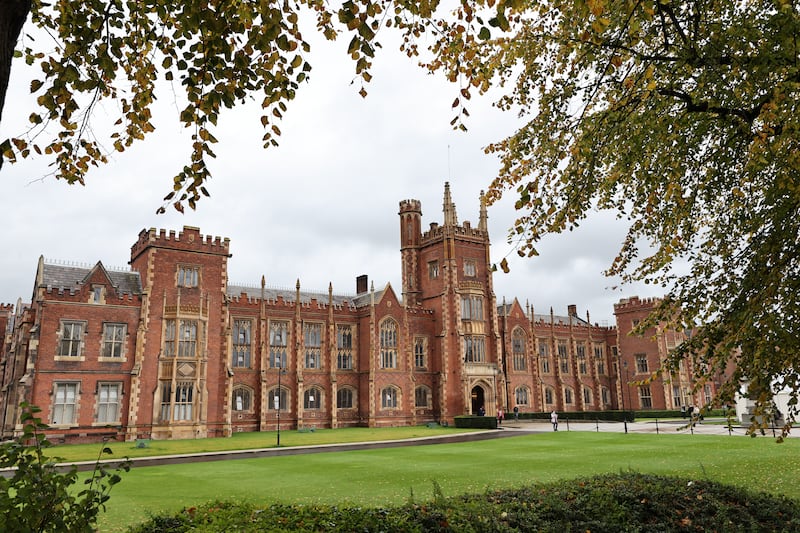A new strategy outlined by Economy Minister Conor Murphy is a noble attempt at jumpstarting the Northern Ireland economy. Good jobs, regional balance, higher productivity and reduced carbon emissions are all desirable outcomes.
However, although Mr Murphy demonstrably cares about improving the lives of people, a strategy that looks as much like good politics as it does good economics may not be enough.

Northern Ireland is in an economic quagmire. According to the website Statista, the GDP per capita in the Republic is almost four times higher. Entrenched stagnation of this type is not easily displaced and jolting the economy out of its state of stasis is going to require radical action.
hHowever, despite the seemingly gargantuan nature of the task there is still plenty of room for optimism. Real, tangible things can be done and mobilizing both the public and private sectors in unison will affect positive change working in Northern Ireland.
By far the biggest factor that international companies consider when deciding where to create a base is the availability of skilled talent. It is inconceivable to ever have a workforce of highly skilled but economically inactive technologists. Like sponges, they soak up job offers, attracting inward investment along the way, and so a singular focus on producing as many of these skilled professionals as possible should be the undisputed number one economic priority.

To achieve this, though, the main actors need to get creative. For example, Queen’s University Belfast in 2020-21 was only able to admit 184 students to the Computer Science with Professional Experience BSc. Imagination is needed to increase the numbers not just at Queen’s but also at Ulster, Belfast Met and the regional colleges by some order of magnitude.
The educational institutions will contend that currently this is not possible due to a lack of funding and strict quotas on student numbers. This is of course true and so the stakeholders in the assembly, in cahoots with the educational institutions, must start preparing for disruptive change.
The role of the private sector is also of paramount importance. Talk to any technology executive in Northern Ireland and they will bemoan how difficult it is to source talent, even though it is their vested interest to not just draw from the pool but to actively grow it.
- Conor Murphy pledges to promote ‘good jobs’, address regional balance and ‘take full advantage of the all-Ireland economy’Opens in new window
- Conor Murphy: ‘There has been a reluctance to promote dual market advantages’Opens in new window
- In 2010 Stormont made the economy its clearly-stated top priority - today there are many other competing prioritiesOpens in new window
Private companies pay robust fees to professional recruitment consultants in the zero-sum game of finding and hiring skilled workers. That money could be better put to work funding scholarships for students that select a computer science degree ahead of the traditional safe havens of law or accountancy. The benefit being the creation of an entirely new legion of hackers and coders already beholden to their corporate benefactors.
So although a plentiful supply of technologists will indeed spawn an increase in foreign direct investment, this is not the only prize. Techies also tend to start and grow indigenous companies and where there’s start-ups, there’s private equity and free flowing capital.
The first and most impactful thing to do is to instigate a massive increase in the number of skilled technology and engineering professionals
One only has to look to other countries, even one also ravaged by societal division, to see what can be achieved. Prior to the current crisis, Tel Aviv was ranked just behind Silicon Valley as the best place in the world to launch a high-tech, start-up company. Similarly, Estonia has been ranked as having the highest count of start-ups and unicorn companies per capita in Europe. Both cases are attributed to having an unusually highly skilled and technologically tractable workforce.
So the north of Ireland can revitalize itself through mass-scale upskilling, albeit with other factors playing an important role.

More can be done to make it easier to get to Belfast and the absence of a direct flight from the US is a problem. No executive visiting their near-shore office wants to drive 100 miles from the airport after an overnight red-eye.
Similarly, city councils, planning departments, architects and builders must pay more attention to the aesthetic of the larger towns and cities by protecting open spaces, parks and historic buildings. No more tearing down of Victorian or Edwardian buildings to be replaced by identikit apartment complexes.

Finally, art and culture must be championed by all. Supporting art galleries, museums and theatres is a collective moral obligation because just as a strong economy feeds the belly, culture and the arts feed the soul.
So in 2024 plenty is being done to revive the economy and the relevant governmental departments should be applauded for their endeavour.
But an increase in university funding, a marked increase in student quotas plus a renewed focus on transitioning to a high-tech economy can create a vibrant new normal for the greater benefit of all.









